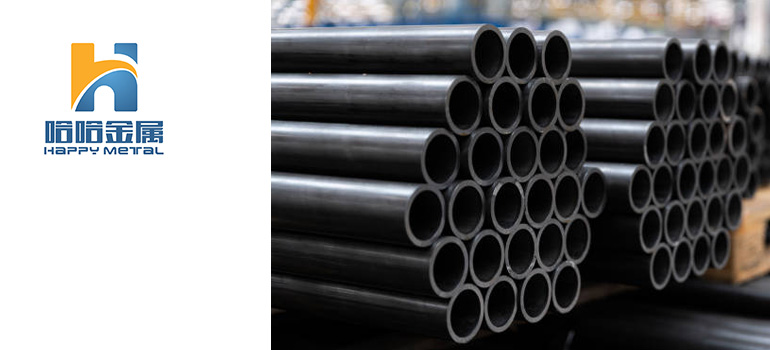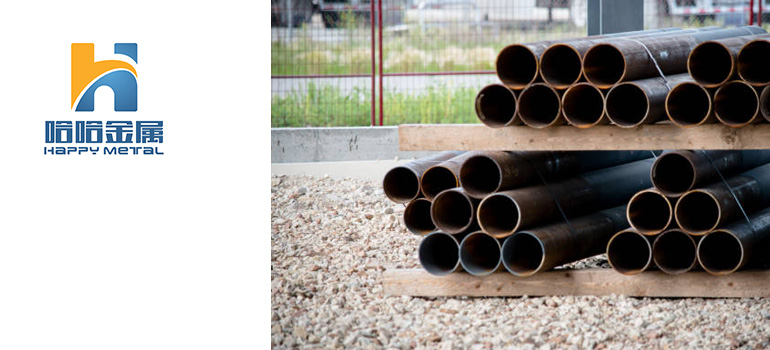Summary:
The Versatility of Carbon Steel Pipes in Modern Industries
What are Carbon Steel Pipes?
Major Industries Utilizing Carbon Steel Pipes
Environmental Benefits of Carbon Steel Pipes
Technological Advancements and Innovations
Future Trends and Applications
Carbon steel pipes are a fundamental component in modern industries, playing a crucial role in various applications due to their unique properties and reliability. These pipes are primarily composed of iron and carbon, with trace amounts of other elements, making them robust and versatile for a wide range of uses.
What are Carbon Steel Pipes?
Carbon steel pipes are designed to withstand high pressure, temperature variations, and corrosion, making them ideal for demanding industrial environments. They are categorized into different grades based on their carbon content, which determines their strength and suitability for specific applications.
Properties that Make Carbon Steel Ideal
Carbon steel pipes exhibit exceptional mechanical properties such as tensile strength and hardness, which ensure durability and longevity in service. Their ability to withstand extreme conditions makes them suitable for both high-temperature and high-pressure applications across industries.
Importance in Industrial Applications
In various industrial sectors such as construction, oil and gas, manufacturing, and infrastructure development, carbon steel pipes are indispensable. They serve as reliable conduits for fluids, gases, and structural support systems, contributing significantly to operational efficiency and safety.
Carbon steel pipes are preferred in industries where reliability, cost-effectiveness, and performance under pressure are paramount. Their versatility extends to both traditional uses and innovative applications, making them a cornerstone of modern industrial infrastructure.
Major Industries Utilizing Carbon Steel Pipes

Carbon steel pipes are integral to a variety of industries due to their strength, durability, and versatility. Here are some of the major industries where carbon steel pipes play a crucial role:
Oil and Gas Sector
Pipeline Transportation
Carbon steel pipes are extensively used in the transportation of oil, natural gas, and other petroleum products over long distances. Their strength and resistance to corrosion make them ideal for this critical application.
Offshore Drilling Applications
In offshore drilling operations, where harsh marine environments pose significant challenges, carbon steel pipes are preferred due to their ability to withstand high-pressure conditions and resistance to corrosion from seawater.
Refining Processes
Within refineries, carbon steel pipes are essential for transporting crude oil and refined products between different stages of the refining process. Their durability ensures reliable operation under varying temperature and pressure conditions.
Construction Industry
Structural Supports
Carbon steel pipes are used extensively in construction for structural support, such as in building frames, bridges, and other infrastructure. Their high strength-to-weight ratio makes them suitable for carrying heavy loads over long spans.
Water Supply Systems
Municipal water supply systems rely on carbon steel pipes for transporting potable water and wastewater. Their resistance to corrosion and ability to maintain water quality make them a preferred choice in this critical infrastructure.
HVAC Installations
Heating, ventilation, and air conditioning (HVAC) systems use carbon steel pipes for distributing hot and cold water, steam, and other fluids throughout residential, commercial, and industrial buildings. Their reliability ensures efficient operation of HVAC systems.
Carbon steel pipes play a vital role in these major industries by providing reliable and cost-effective solutions for fluid transportation, structural support, and infrastructure development. Their versatility and durability make them indispensable across various industrial applications, contributing to the efficient and safe operation of critical infrastructure worldwide.
Environmental Benefits of Carbon Steel Pipes
Carbon steel pipes offer several environmental advantages compared to other materials, making them a sustainable choice across various industries. Here are key aspects where carbon steel pipes contribute positively to environmental sustainability:
Sustainable Material Choice
Recyclability and Reusability
Carbon steel pipes are highly recyclable at the end of their service life. Recycling reduces the demand for new raw materials and minimizes energy consumption and greenhouse gas emissions associated with steel production.
Long Service Life
Carbon steel pipes have a long service life, often lasting several decades with proper maintenance. Their durability reduces the need for frequent replacements, thereby lowering overall material use and waste generation.
Reduced Environmental Impact
Energy Efficiency
Manufacturing carbon steel pipes requires less energy compared to other materials like plastics or composites. This lower energy consumption contributes to reduced carbon emissions and environmental impact during production.
Lower Emissions
Carbon steel pipes have a lower carbon footprint throughout their lifecycle, from manufacturing to transportation and use. They contribute less to air and water pollution compared to materials that require more energy-intensive production processes.
Corrosion Resistance and Preservation of Natural Resources
Resistance to Corrosion
Carbon steel pipes are resistant to corrosion, which minimizes the risk of leaks and environmental contamination. This quality ensures the safe transportation of fluids without compromising environmental integrity.
Preservation of Natural Resources
By choosing carbon steel pipes, industries contribute to the conservation of natural resources. Reduced material consumption and longer service life translate to fewer resources extracted and less waste generated over time.
Carbon steel pipes’ environmental benefits make them a sustainable choice for industries seeking to reduce their ecological footprint and comply with environmental regulations. Their recyclability, durability, and lower emissions profile contribute to overall environmental stewardship and support sustainable development goals worldwide.
Technological Advancements and Innovations
Technological advancements have significantly enhanced the capabilities and applications of carbon steel pipes across various industries. Here’s an overview of key innovations shaping the future of carbon steel pipes:
Advancements in Manufacturing
Seamless vs. Welded Pipes
Modern manufacturing techniques have improved the production of both seamless and welded carbon steel pipes. Seamless pipes, manufactured without seams, offer higher strength and reliability, suitable for high-pressure applications. Welded pipes, produced by welding steel plates together, are cost-effective and widely used in various industrial sectors.
Coatings and Corrosion Resistance
Innovations in coating technologies have enhanced the corrosion resistance of carbon steel pipes. Various coatings, such as epoxy, polyethylene, and zinc, provide additional protection against rust and extend the pipes’ service life in harsh environments.
Precision Engineering Techniques
Advances in precision engineering allow for the fabrication of carbon steel pipes with precise dimensions and tolerances. Computer-aided design (CAD) and computer numerical control (CNC) machining ensure accuracy and consistency in pipe production, meeting stringent industry standards.
Future Trends and Applications
Integration with IoT and Automation
The integration of carbon steel pipes with Internet of Things (IoT) technologies and automation systems enhances monitoring, maintenance, and efficiency. IoT sensors embedded in pipes can provide real-time data on temperature, pressure, and structural integrity, optimizing operations and reducing downtime.
Emerging Markets and Opportunities
Carbon steel pipes continue to find new applications in emerging markets such as renewable energy, water treatment, and telecommunications infrastructure. Innovations in pipe design and material properties open up opportunities for sustainable development and infrastructure expansion globally.
Research and Development Initiatives
Ongoing research and development initiatives focus on enhancing the performance and sustainability of carbon steel pipes. Innovations in alloy composition, hybrid materials, and manufacturing processes aim to further improve strength, durability, and environmental compatibility.
Technological advancements and innovations in carbon steel pipes underscore their evolving role in modern industries. From enhanced manufacturing processes to integration with digital technologies, these innovations drive efficiency, reliability, and sustainability in the use of carbon steel pipes across diverse applications.




